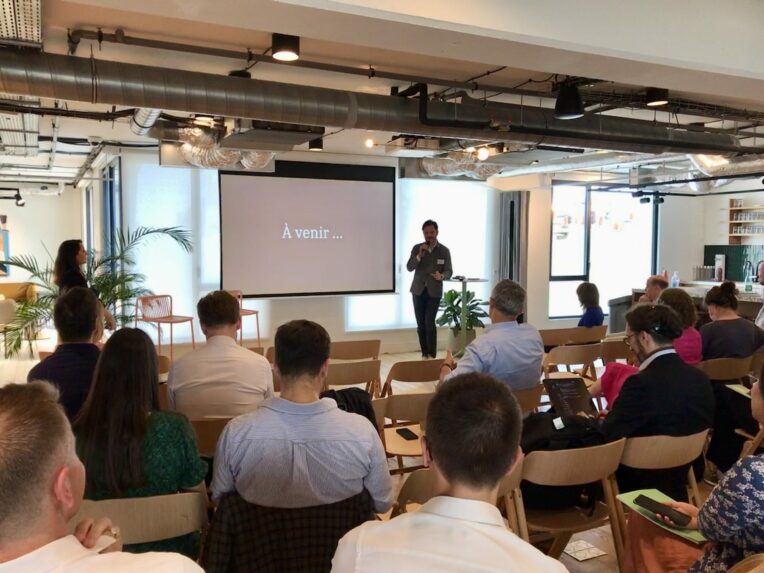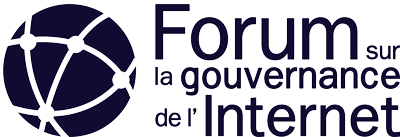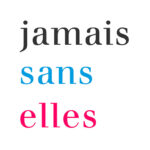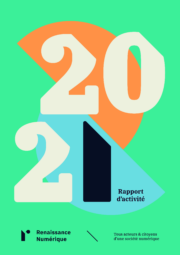Our mission
The digital transformation : A challenge for our society
Carrying an enormous amount of power, the digital transformation is shaking up the social, economic and political foundations of our societies. It impacts economic value chains, interactions in our modern era, and the way we live in society. Ambiguous, shifting and fast-paced all at once, this transformation is eminently complex.
It offers the possibility to restore public debate and to renew democratic life. It provides an impetus for our rights and liberties (of expression and of entrepreneurship, notably). It gives a chance for the European Union to re-establish itself across world markets that are crucial for our future economy. In this sense, the digital transformation represents an immense opportunity without precedent, not only for every citizen, but also for Europe as a society.
It is nevertheless at a critical stage. Our societies, our authorities (political, economic), impacted by this transformation, tend to both want to take advantage of it as well as to neutralise the power and potential of the digital transformation. Although digital tools are present everywhere, the demands for their utilisation and the limitation of their power do not cease to multiply. The calling for their regulation is a recurring phenomenon, and the need to reinvent digital governance is becoming increasingly important.
The challenge for our societies is to integrate ourselves into this transformation: taking advantage of its potential and benefits, transforming alongside it, reinventing our economic, social and political logics, and collectively working to limit its potential negative externalities.
Nicolas Vanbremeersch
President, Renaissance Numerique
Actors and citizens of a digital society
Created in 2007, Renaissance Numérique was born out of a double ambition:
- to consider all members of society as full actors of the digital transformation (citizens, private actors, and public actors alike);
- and to work towards allowing all of them to benefit from the changes brought about by this transformation.
The think tank seeks to shine a light on this transformation and to feed into the public decisions and actor strategies that are developed in response to it. By doing this, Renaissance Numérique aims to give everyone the keys to master the digital transformation.
In addition, the think tank strives to propose a long-term vision, a strategy around this transformation.
Leading the debate on the digital transformation
Looking to shine a light on the digital transformation requires new ways to debate and establish dialogue. This is why Renaissance Numérique promotes the organisation of an open, free, public and inclusive debate.
The digital transformation deserves a quality debate, one that goes beyond the logics of representation and of categorical interests. Within the think tank, this ambition translates into the confrontation of the most plural set of expertises and points of view. Moreover, this approach aims to ensure the voice of civil society – in all of its diversity – is heard.
In addition, the complexity, paradoxes and tensions that the digital transformation creates must all be respected. The tendency and temptation to simplify, meet around mere buzzwords, or use frames that are too simplistic, often prevent a proper understanding of the issues fruit of the digital transformation. They are an obstacle to the realisation of an intelligent and useful governance of digital technologies.
Our ambition is, rather, to organise a debate that foresees far ahead into the future and looks deep within the issues. While governance, debates, and regulations often happen in the spur of the moment, Renaissance Numérique pays attention to the root of issues and to the depth of the ongoing transformations. Where quick reaction too often reigns , we introduce a strategy.

Renaissance Numérique's 2022 General Assembly
Our areas of work
Renaissance Numérique offers a place to debate, a place to positively confront expertise and ideas, over long and short timelines, in a variety of formats: open or closed events, notes, reports, analyses, interviews, opinion columns, contributions in the media and for public institutions…
The think tank enriches public debate by making new subject matters emerge, by opening up new perspectives, or by reframing debates that are often malnourished.
We concentrate our efforts along three areas: society, economy, and power.
Society
Our new social practices, their mediation, and the new ways in which we debate and hold dialogues renew and transform our relationships. They modify the structures and dynamics of representation, and the very nature of our public space. By doing this, the digital transformation induces a new organisation of society, a variety of new technological uses, all taking place in new spaces. In these spaces, content, but also interactions and identities, go through a process of perpetual redefinition.
Renaissance Numérique wants to inform the way we understand how society organises in the digital era. As such, we want to weigh in on the ways we can collectively build this society and how to construct common and private spaces, for the benefit of all.
Economy
The digital transformation of the economy is at the origin of new prosperity and new dynamics in our societies. New technologies, new innovations, new sectors appear, and disrupt entire value chains.
Renaissance Numérique contributes to the construction of shared visions and strategies, both on the transformation of key sectors (agriculture, health…), and on the logics guiding new economic models (platformisation, etc.), to anticipate the dynamics and transformations to come and to allow all actors concerned to design strategies.
Power
The digital transformation of society brings about new ways to interact with power. It creates relations of force, rivalries, and unprecedented tensions: between individuals and the State, between the State and companies, between individuals and companies, amongst individuals, even amongst States themselves. Threatened, weakened or strengthened in this new age, all actors with power, as well as actors involved in mediation and representation, be they public or private, are called upon to reinvent their roles and methods of action. From this reality materialise new areas for regulation and governance.
Renaissance Numérique seeks to understand and define these new dynamics of power. The think tank pays particular attention to the preservation of the safeguards necessary to maintain the balance between our different fundamental rights and liberties in the digital age.
Who finances Renaissance Numérique?
Renaissance Numérique’s funding is essentially private. Most of the think tank’s funding comes from its members’ annual membership fees, which range from €60 to €20,000 depending on the nature of the member and on their turnover (for more information on the think tank’s membership modalities , please consult our Become a Member of Renaissance Numérique page).
No membership fee can exceed 7% of the think tank’s annual resources, which amount to approximately €267,000 for the year 2021 (January 2021 – December 2021). Ancillary projects, such as events or publications, may also be supported or sponsored on an ad hoc basis.
Networks and transparency
Renaissance Numérique is a historic member of the EducNum project initiated by France’s data protection authority – the Commission nationale de l’informatique et des libertés (CNIL) – in May 2013, and of the organisational committee of the French chapter of the Internet Governance Forum (IGF).

Since 2020, Renaissance Numérique is also a member of the French Observatory for online hate (Observatoire de la haine en ligne), created under the umbrella of the Conseil supérieur de l’audiovisuel (now Arcom, France’s audiovisual media services regulator). Stemming from the 24 June 2020 law aiming to fight online hate, the Observatory is composed of more than 50 actors (digital services providers, associations, public administrations, researchers).
Its goal is to measure and study the phenomena of online hate in France in order to better fight against it. The think tank notably participates actively in the third working group of the Observatory, which is dedicated to the analysis of online hate propagation mechanisms as well as the means to fight against them.

As a recognition of its efforts towards diversity and inclusion, Renaissance Numérique was labelled by the #JamaisSansElles movement, which is committed to promoting gender diversity, particularly in public events. On the occasion of the 13th edition of the Internet Governance Forum (IGF), the think tank reinforced this commitment by signing the #JamaisSansElles Charter for Internet Governance Actors, which aims to adopt a global and generic rule of conduct for the equal recognition and participation of women in the digital world. In line with its transparency approach, the think tank is registered in the interest representative register of the French High Authority for the Transparency of Public Life (Haute Autorité pour la transparence de la vie publique, or HATVP), as well as in the European Union’s Transparency Register.

